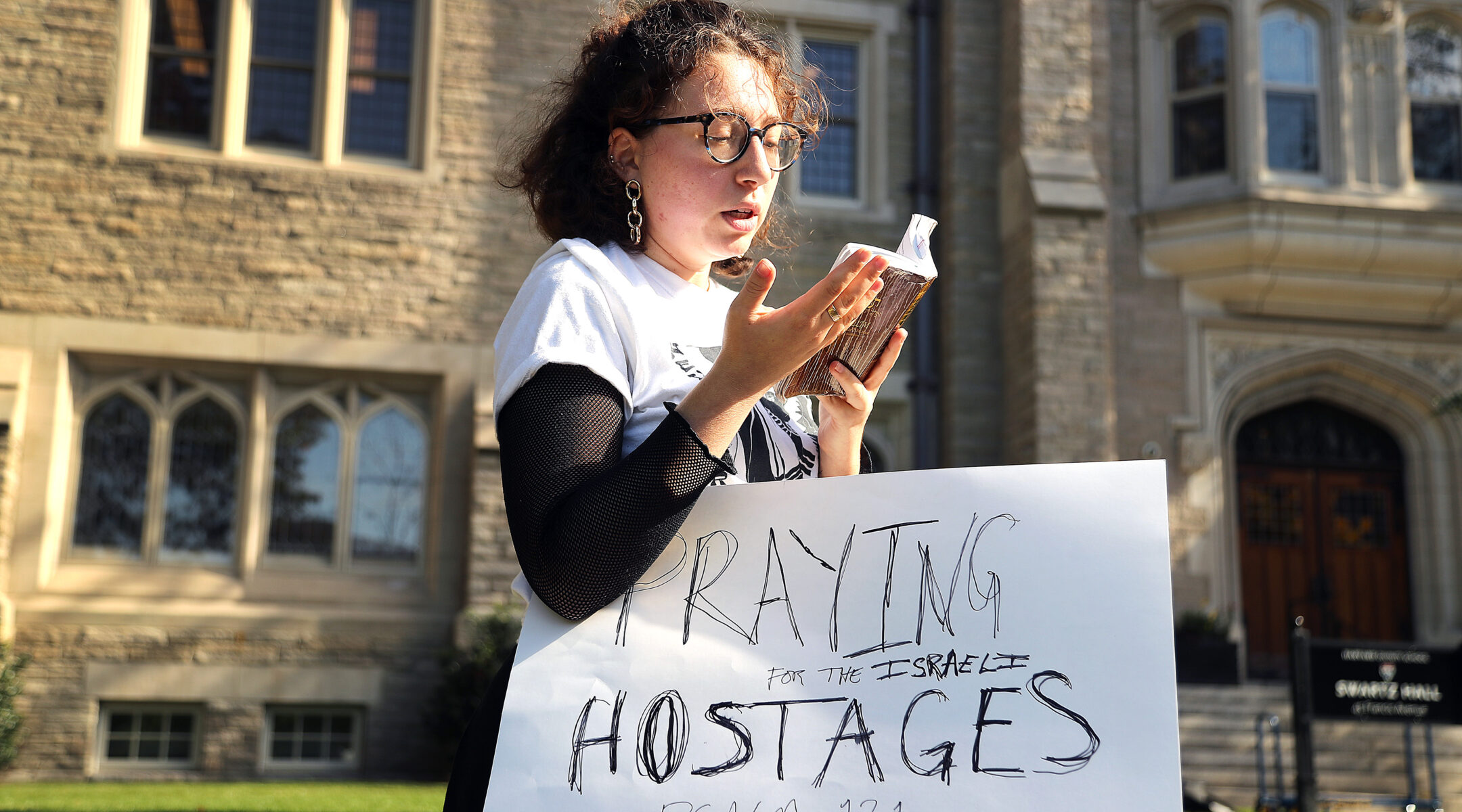(JTA) — Like Jews around the world, I have spent the last days glued to my news sources, refreshing my screen every few minutes to find out if, as had been rumored for some time, there is a plan for the Israeli hostages to be released. I know I will continue to keep my eyes peeled as we wait for the moment that the hostages go free.
As one who is keen on using brachot, Jewish blessings, to infuse special moments with kedusha, or holiness, I am very much prepared to make two brachot when that moment finally arrives: Shehechiyanu and Dayan Emet.
With Shehechiyanu we say thanks for the privilege of experiencing an extraordinary joyful moment.
With Dayan Emet we subserviently accept the evil that has befallen us.
Those two blessings do not necessarily seem like they would belong in the same moment. But Judaism recognizes that there are moments in life when we experience competing emotions simultaneously, sad and joyous at the very same time. During such rare moments, halacha, or Jewish law, advises a person to say these two contradictory brachot.
The point being: One can hold two competing emotions at once.
Jews have a long history of doing just that. And we hope we will be doing it again any day now — when the first of the hostages set to be released under a truce deal cross back into Israel.
We will undoubtedly be thrilled for those who will be released, rejoicing with the people who will finally be reunited with their loved ones. But there is no denying though that there are also those who are going to be devastated when they learn that their loved ones were not included in this round of hostage exchange. We therefore need to be extremely careful not to let our gloating blind us to their pain, even as we rejoice.
Therefore, the proper way to sanctify the moment when some of the hostages are released is to mournfully rejoice. To partake in the joy of the privileged few, without for a moment forgetting those less privileged whose pain has in fact been made more acute by this partial release.
One eye will cry tears of joy and the other will shed tears of heartbreak.
JTA has documented Jewish history in real-time for over a century. Keep our journalism strong by joining us in supporting independent, award-winning reporting.







